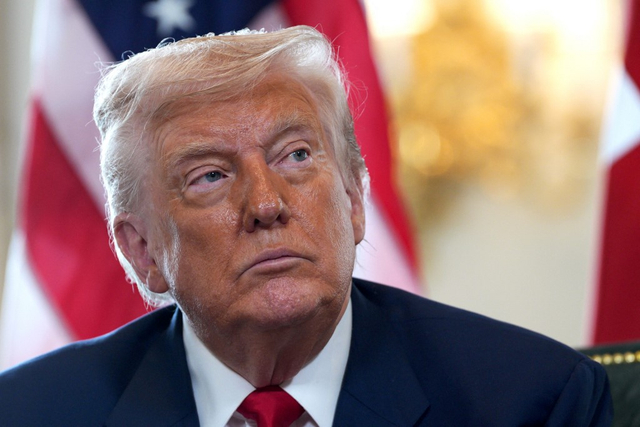
US President Donald Trump has shortened the 50-day deadline he set in July as an ultimatum to Russia and given President Putin just ten more days to agree to a ceasefire in the war against Ukraine. After that, Russia’s trade partners could face tariffs of up to 100 percent, he warned. Commentators debate the consequences of the announcement.
All bluffs and posturing
JOIN US ON TELEGRAM
Follow our coverage of the war on the @Kyivpost_official.
The Süddeutsche Zeitung wonders what impact the threat of punitive tariffs is meant to have on Russia’s trading partners (Germany):
“A few weeks ago, China showed the US how it would react to something like this when Trump wanted to impose a 145 percent tariff on imports its exports. It simply suspended deliveries of rare earths to the US, and the three-digit tariffs were quickly taken off the table. Ten, twelve-day deadlines, 100 or even 500-percent punitive tariffs – these figures are being pulled out of thin air, it’s all bluffs and posturing. They are intended to conceal the fact that Trump, who boasted that he could end the conflict in Ukraine within 24 hours, hasn’t the faintest idea how to persuade Putin to agree to a ceasefire.”
Moscow only understands the language of brute force
Novinky.cz is sceptical (Czech Republic):
“We can assume that Trump will indeed impose harsh sanctions on Russia once the twelve-day deadline expires – as announced. This is what Putin really fears, he claims. Because yes, Russia has economic and financial problems. The state is running out of money, and even basic foodstuffs in some areas. Nevertheless, it continues to wage its war at full throttle. Sanctions won’t end this war. Russia only understands the language of brute force. We must learn it quickly and finally help Ukraine to respond with equal force and pain. Otherwise we may all have to learn Russian again.”
Shmyhal, Pistorius Discuss Ramstein Meeting Outcomes and Ukraine’s Defense Needs
Shmyhal expressed gratitude for Germany’s continued support, highlighting its role as a key partner in bolstering Ukraine’s defense capabilities through international coalitions and aid packages.
Power games with Russia and China
Trump’s announcement is not directed at Putin but at Asia, blogger Oleksiy Panych explains on Facebook (Ukraine):
“The real targets of Trump’s statement are India and China, with whom the US is currently engaged in intense tariff negotiations. In essence this is a way of putting pressure on them: either they show willingness to compromise or Trump will feel ‘forced’ to use tariffs to punish them for their stubbornness – after all, there’s a convenient excuse: ‘Putin doesn’t want to end the war, and you’re buying his oil.’ So the more they give in to pressure in the tariff negotiations, the less likely it is that the ultimatum to Putin will be followed by any concrete measures.”
A dangerous miscalculation for the Kremlin
The Russian president has underestimated his US counterpart’s resolve, The Daily Telegraph (United Kingdom)concludes:
“Putin’s determination to call Trump’s bluff is a dangerous miscalculation. He appears to have predicted that Trump would withdraw military support for Ukraine upon taking office and hand Russia a blank cheque for further aggression, but these assumptions were mistaken. … Trump has lost patience with Russia’s stalling tactics and obstructionism. The consequences of this change of heart could ensure Putin regrets playing Trump.”
US president feels duped
Trump and Putin simply don’t understand each other, La Stampa (Italy) explains:
“As a businessman, Trump can’t comprehend that a country would allow itself to be driven into poverty and isolation. … For his part Putin, a KGB agent who grew up in a world in which money was worthless, can’t understand why anyone would make compromises when it comes to power: for him, it is power that creates wealth, never the other way round. Putin interpreted the concessions offered by the ‘master of the deal’ as weakness: instead of signalling a willingness to compromise he upped the stakes. … Now Trump feels that Putin has deceived him and will hardly forgive him for slighting his ‘art of the deal’. After six months it’s back to square one.”
Nothing has happened yet
Radio Kommersant (Russia) sees nothing new here:
“This is not the first time the White House boss has threatened Russia with a ‘deadline’. But the rhetoric is becoming increasingly harsh and concrete consequences are emerging. Let us not forget that Trump has a tendency to ‘backtrack’ and change his stance. … The American president has, as he freely admits, given in several times and effectively withdrawn his main demand for an immediate ceasefire. But now he is ready to up the pressure. However, nothing has happened yet. And perhaps nothing will.”





